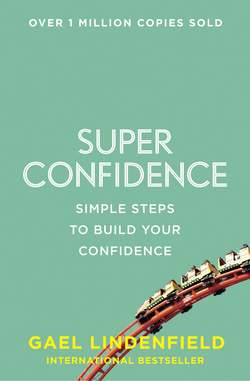Читать книгу Super Confidence: Simple Steps to Build Your Confidence - Gael Lindenfield, Gael Lindenfield - Страница 29
Why Knowing Yourself Is Important
ОглавлениеIf you have a tendency to feel that time spent working in this area would be ‘self-indulgent’, just think of the following advantages we stand to gain if we become fully acquainted with ourselves and our potential:
We feel more in control – We are able to relax and are less prone to getting unpleasant shocks about ourselves, for example, ‘Oh, I surprised myself, I didn’t think I could be so nasty (or frightened, or weak)’.
We can use our time effectively – For example, we can choose to spend more time doing things we are good at, or learn to improve those areas which we are weakest in, we can set realistic goals for ourselves.
We can protect ourselves – If we acknowledge that we have a particular weakness, we can make allowances for this and we will be better able to defend ourselves from both fair and unfair criticism.
| ‘Oh no, I wouldn’t know where to start . . . It’s too complex, and anyway, I’m always changing’. |
Let’s consider some of the common arguments people tend to use to convince themselves that they do not wish to acquire more self-knowledge, for example: ‘I am afraid that when I start delving, I will get some unpleasant surprises and I will end up not liking myself’.
This is a very understandable fear because confidence is so highly valued in our society. Consequently, those who lack it may well have doubts about their own self-worth. These are likely to have been fostered and reinforced by important people in their lives who may have been, or may still be, treating them as ‘lesser mortals’. My experience is that embarking on a voyage of self-discovery is highly rewarding for these people, and full of very pleasant surprises. Strengths and virtues may have been obliterated previously by doubt and anxiety. For people lacking in confidence, the process of getting to know yourself better usually means uncovering and reclaiming parts of yourself which you truly admire and value. For many people I have known, this has meant finding their buried creativity and sensuality.
People who make this kind of excuse are often admitting that their real fear is that introspection will send them mad. The reason for this fear is that they often actually feel a little ‘mad’, that is, not in control of their feelings and behaviour. They cannot, for example, understand why they suddenly ‘dried up’ in the middle of a speech or an interview, or why they should have felt intimidated by someone they considered their match. In fact, having ‘insight’ (to use the more technical name for self-awareness), would in most psychiatrists’ eyes, be a contraindication of madness. The more self-knowledge we have, the more control we can exert over our feelings and behaviour.
Of course, other people’s behaviour and events can have considerable impact on us and our lives, but we need to feel that we have some control over the way we are being influenced. Confident people are continually adapting and changing, according to the different situations and relationships they are experiencing, but they do not lose a sense of their own ‘core identity’. They do not feel overwhelmed or supremely anxious, because they feel in charge of this changing process. People who lack confidence, on the other hand, either tend to stick rigidly to one persona or use markedly different faces for every situation, so you are often not quite sure who you are going to meet! They know that the faces which they use are often inappropriate for certain situations, but they feel unable to control their behaviour.
| ‘There’s no point in finding out who I am, or what I want, because you can’t control other people, or change what fate has in store for you.’ |
Feeling powerless is central to problems of confidence. People who feel this way have almost certainly been abused by someone or by some people who took advantage of them when they were actually powerless. The most effective way that I know of, for changing this kind of thinking, is to identify the culprits, as we began to do in the last chapters (see here).
